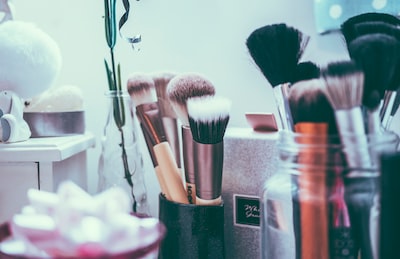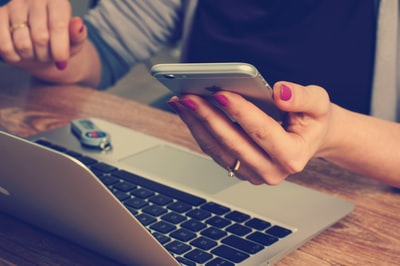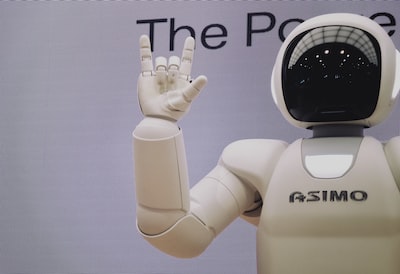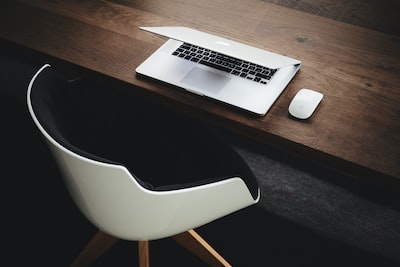Makeup artists have long possessed the uncanny ability to transform ordinary faces into extraordinary works of art. However, in this age of advanced technology, their craft is facing an unexpected challenge—AI impersonation.
Yes, you read that right, artificial intelligence is now encroaching upon the creative realm of makeup artistry. While it may seem like a bizarre concept, with AI advancing at an exponential pace, the threat is becoming all too real.
As makeup artists strive to create unique and personalized looks, they must now equip themselves with AI impersonation prevention techniques to safeguard their artistry and protect clients from the unexpected dangers lurking in the digital realm.
In the ever-evolving landscape of technology, artificial intelligence has permeated various industries, from healthcare to finance. However, as AI continues to expand its reach, so does the potential for misuse and deception.
AI impersonation, a rising concern in the world of makeup artistry, has prompted professionals to delve into the realm of prevention techniques. With the ability to mimic the artistry and precision of human makeup artists, AI holds the power to replicate their skills and styles, posing a threat to the authenticity and integrity of the craft.
Many professionals are now grappling with the question of how to prevent AI impersonation and protect their artistic identity. While the task may seem daunting, there are essential tips and techniques that can be implemented to safeguard against this emerging challenge.
From utilizing watermarking algorithms to watermark and trace their work, to creating personalized signature styles that are intricately tied to their human touch, makeup artists can maintain their artistic individuality in the face of AI imposters. Additionally, incorporating dynamic and ever-evolving techniques that constantly challenge the capabilities of AI systems can help to deter and identify fraudulent imitations.
By embracing the advancements in technology while simultaneously staying true to their unique artistry, makeup artists can stay one step ahead of AI’s attempt to infiltrate and undermine their craft. In this article, we will explore the intricacies of AI impersonation prevention techniques, providing essential insights and guidance to makeup artists seeking to protect their creative legacy.
So, buckle up and let’s dive into the world of AI in makeup artistry, where innovation meets preservation, and where human ingenuity reigns supreme.
Table of Contents
Understanding AI impersonation and its potential risks
In today’s age of rapidly advancing technology, artificial intelligence (AI) has become an integral part of our lives. From voice assistants to self-driving cars, AI has transformed various industries, including the world of makeup artistry.
However, along with its benefits, there are also potential risks associated with AI impersonation. Understanding the complexities surrounding AI impersonation is crucial for makeup artists to protect their art and reputation.
According to a study conducted by the renowned research organization, OpenAI, the sophistication of AI algorithms has reached a level where they can accurately mimic human-like makeup techniques. To stay ahead of this potential threat, makeup artists must arm themselves with the knowledge and techniques to prevent AI impersonation.
Tips for preventing AI impersonation as a makeup artist include avoiding sharing personal makeup routines online, utilizing unique and creative styles, and continuously educating oneself about the latest advancements in AI. By being proactive and staying informed, makeup artists can safeguard their craft from AI impersonation and maintain the authenticity of their art. OpenAI
Securing your online presence and personal information
The world of technology is always changing. Artificial intelligence has brought lots of convenience, but it has also raised concerns about privacy and security.
AI is getting more advanced, and one area where it is causing problems is in makeup artistry. AI can create extremely realistic face transformations, which poses a unique challenge for professional makeup artists.
They need to protect themselves from AI impersonation. This means creating strong passwords and regularly updating them, as well as enabling two-factor authentication.
It also means being careful about sharing personal information online and staying informed about cybersecurity threats. Makeup artists who take these steps will be better able to protect their online identity and succeed in the future.
Utilizing strong passwords and two-factor authentication
AI has made its mark in various industries, including beauty and makeup. With AI-powered makeup filters and virtual try-on tools, consumers can experiment with looks effortlessly.
But this trend brings a new concern: the risk of AI impersonation. How can we ensure authentic virtual makeup artists? The answer lies in strong passwords and two-factor authentication.
By safeguarding our digital identities with complex passwords and an additional layer of verification, we can reduce the chances of AI impersonation. But are these measures foolproof? How can we stay ahead of potential threats? These questions perplex both consumers and professionals in the beauty industry.
Nonetheless, taking proactive steps in preventing AI impersonation in beauty and makeup is crucial, safeguarding our virtual beauty experiences and identities.
Verifying client identities and avoiding suspicious requests
Makeup artists today must be cautious of new challenges in the rapidly advancing digital age. One such challenge is AI impersonation, where AI has become so sophisticated that it can deceive clients by mimicking the work of a makeup artist.
This poses a significant threat to their credibility and livelihood. To avoid falling victim to AI impersonation, makeup artists need to be aware of essential tips and techniques.
The first tip is to verify client identities. Confirming that the person seeking services is who they claim to be helps detect AI impersonation attempts.
Being cautious of suspicious requests is also crucial. These requests can include unusual payment methods or vague and unrealistic expectations.
Makeup artists need to stay vigilant, adaptable, and willing to embrace new technologies to protect against AI impersonation. Tips for them include implementing strong identification procedures, keeping up with advancements in AI technology, and establishing a trustworthy online presence to differentiate themselves from AI simulations.
Taking these precautions enables makeup artists to safeguard their profession and thrive in the evolving digital landscape.
Staying updated on AI advancements and potential threats
Makeup artistry is constantly changing, and so is the technology behind it. Artificial intelligence (AI) has become a powerful tool in the beauty industry, offering new possibilities for creating flawless looks.
However, these advancements also bring potential risks, particularly AI impersonation. Makeup artists need to stay informed about the latest AI breakthroughs and learn how to prevent impersonation.
By understanding what AI can do and how it can imitate human artists, professionals can take proactive steps to protect their artistry and preserve the integrity of their work. This includes recognizing signs of AI-generated makeup and implementing cybersecurity measures.
Staying ahead of emerging threats is crucial for the makeup artistry community. Prevention is the key, and knowledge is the first line of defense against AI impersonation in the field.
Keep learning, stay informed, and continue to create with your unique human touch.
Cultivating a trustworthy online reputation through client reviews.
Having trouble distinguishing between a real makeup artist and an AI impersonator? AI’s increasing popularity in the beauty industry has raised concerns about the authenticity of online makeup tutorials and artists themselves. So, how can you avoid falling into the trap of digital deception? One important aspect is developing a trustworthy online reputation through client reviews.
Use social media platforms to showcase your expertise and interact with your followers. Encourage satisfied customers to leave reviews and testimonials, giving potential clients the information they need to make informed decisions. Additionally, take advantage of AI technology that can identify and expose deepfake makeup creations.
By staying vigilant, educating your clients, and investing in techniques to prevent AI impersonation in makeup artistry, you can safeguard your professional reputation and ensure that the artistry of the human touch remains unmatched.
Revolutionizing Email Security for Makeup Artists: Cleanbox’s AI Impersonation Prevention
Cleanbox can be a game-changer for makeup artists in the realm of AI impersonation prevention. With the rise of technology, it has become increasingly easier for impersonators to deceive and exploit vulnerable individuals, including makeup artists.
However, Cleanbox offers a robust solution to combat this issue. By harnessing advanced AI technology, Cleanbox actively identifies and filters out suspicious emails that may contain phishing attempts or malicious content.
This not only helps safeguard the makeup artist’s inbox but also protects their reputation and diminishes the risk of falling victim to online scams. Furthermore, Cleanbox streamlines the email experience by sorting and categorizing incoming messages, ensuring that priority messages from clients or collaborators instantly stand out.
By leveraging Cleanbox‘s revolutionary tool, makeup artists can focus more on their craft and less on the treacherous world of email security.
Frequently Asked Questions
AI impersonation as a makeup artist refers to the use of artificial intelligence technology to create highly realistic virtual makeup looks on a person’s face, making it difficult to distinguish between real and virtual makeup.
1. Stay updated with the latest AI makeup technology advancements to understand the capabilities of AI algorithms.2. Develop unique makeup styles and techniques that are difficult to replicate using AI.3. Focus on personalized consultations and custom makeup looks that cater to individual preferences.4. Emphasize the importance of human touch and the artistic aspect of makeup that cannot be replicated by AI.5. Educate clients about the risks and limitations of relying solely on AI-generated makeup looks.
Makeup artists can differentiate themselves from AI impersonation by:1. Demonstrating their ability to adapt to different skin tones, face shapes, and features, which AI may struggle to replicate accurately.2. Showcasing their creativity and innovation through unique makeup looks that go beyond what AI algorithms can generate.3. Providing personalized recommendations and considering individual preferences and style.4. Building trust and rapport with clients through excellent customer service and a personable approach.
Makeup artists can leverage AI technology to enhance their skills by:1. Using AI-powered virtual makeup tools to experiment with new looks and styles before applying them on clients.2. Utilizing AI apps and platforms for color matching and skin analysis to provide more accurate recommendations.3. Staying updated with AI trends and incorporating AI techniques into their makeup repertoire.4. Collaborating with AI experts or companies to explore innovative ways to merge AI and human creativity in the makeup industry.
While AI impersonation poses challenges to the makeup artist industry, it can also be seen as an opportunity for innovation and collaboration. Makeup artists can leverage AI technology to enhance their skills and create unique, personalized looks that surpass the capabilities of AI algorithms. By focusing on the human touch, creativity, and individualized approach, makeup artists can continue to thrive in the industry and offer value that AI cannot fully replicate.
The Long and Short of It
As the world continues to embrace the benefits of artificial intelligence, there are certain professions that find themselves at the nexus of innovation and creativity. Makeup artists, in particular, face a unique challenge in the digital age: impersonation.
With the advancement of AI technology, it has become increasingly easier to create realistic virtual identities, capable of mimicking the skills and styles of renowned makeup artists. This raises concerns about originality, authorship, and trust within the industry.
However, fear not, for there are measures being taken to prevent such impersonation in the ever-evolving world of makeup artistry.Recognizing the need for protection against AI impersonation, industry leaders have come together to devise innovative solutions.
The use of blockchain technology, for instance, allows makeup artists to securely register and authenticate their designs, ensuring proper attribution and safeguarding against fraudulent claims. This novel approach not only preserves the integrity of their craft but also fosters a culture of respect and recognition for their unique talents.
Additionally, advancements in machine learning algorithms have paved the way for AI impersonation detection tools. These sophisticated systems can analyze and compare the style, technique, and signature elements of makeup artists, enabling swift identification of counterfeit virtual identities.
By harnessing the power of AI itself, makeup artists are reclaiming their artistic territory and reinforcing their individuality amidst the digital onslaught.While the battle against AI impersonation is far from over, it is heartening to witness the resilience and adaptability of makeup artists in the face of technological challenges.
They continue to push boundaries, innovate, and redefine their craft, ensuring that genuine artistry remains at the forefront of the industry. By staying informed, embracing technological advancements, and supporting legitimate creators, we can collectively rise to the occasion and preserve the purity of makeup artistry amidst the ever-shifting landscape of AI impersonation.








 in Wyoming
in Wyoming